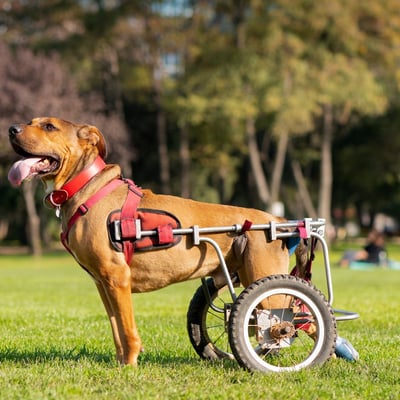The 10 Questions You Must Ask Before Adopting a Dog or Cat

Essential Questions to Ask Before Bringing Home a Rescue Dog or Cat
Adopting a pet is one of the most rewarding decisions you'll ever make—but it's also one that deserves careful thought. Whether you're considering puppies for adoption in your city or browsing profiles of adult cats and dogs, asking yourself the right questions upfront can mean the difference between a perfect match and a heartbreaking rehoming situation.
This isn't about talking yourself out of adoption. It's about walking into it with open eyes, realistic expectations, and a clear understanding of what you're committing to. The dogs and cats waiting in shelters across New York City, Chicago, Los Angeles, Miami, Seattle, Boston, San Francisco, Philadelphia, and every city in between deserve homes where they'll stay forever—and you deserve the joy of a relationship built on compatibility, not just impulse.
So before you fall in love with a face on a shelter website, take a few minutes to honestly answer these ten questions.
1. Am I Truly Ready for a 10-20 Year Commitment?
Dogs typically live 10-15 years, while cats often reach 15-20 years. That's longer than many jobs, relationships, or even housing situations last. Before you adopt a dog in the city or bring home a kitten, imagine your life a decade from now. Will you still be able to prioritize daily walks, vet visits, and companionship? Pets aren't a phase—they're family members who depend on you through every life change ahead.
2. Can I Afford the Real Cost of Pet Ownership?
Let's talk numbers. Beyond any adoption fees (and many organizations offer free pet adoption near me events periodically), you're looking at food, routine vet care, emergency medical expenses, pet insurance or savings, supplies, grooming, and potentially training or pet sitting. Budget at least $50-100 per month for a cat and $75-150+ for a dog, with the understanding that unexpected costs will arise. If that feels tight, it's worth waiting until you're more financially stable.
3. What Energy Level Actually Fits My Lifestyle?
This is where many mismatches happen. If you work long hours and love quiet evenings at home, a high-energy young dog will be miserable—and so will you. Conversely, if you're an avid runner looking for a companion, a low energy dog for adoption might not be the right fit. Be honest about your actual daily routine, not the aspirational version.
For apartment dwellers especially, energy level matters more than size. Some of the best dogs for apartments are actually medium-sized adult dogs with calm temperaments, while a small, high-strung terrier might struggle more with city living. Similarly, while cats are generally more adaptable to smaller spaces, some breeds and individual personalities need more stimulation than others.
4. Do I Understand This Pet's Specific Needs and Background?
Every animal has a story. Some rescue dogs and cats come from loving homes where circumstances changed. Others have experienced neglect, abuse, or abandonment. When adopting a rescue dog in your city or looking to adopt a cat near me, ask shelter staff or foster families about the pet's history, any behavioral considerations, medical needs, and what kind of home would help them thrive.
Don't shy away from pets with manageable special needs—they often make incredibly devoted companions. But do understand what you're signing up for. A dog with separation anxiety needs gradual training. A cat who's fearful of strangers needs patience and a quiet environment. Knowledge is power.
5. Am I Prepared for the Adjustment Period?
The "rule of threes" is real: three days for a pet to decompress, three weeks to start settling in, three months to feel truly at home. Your new dog or cat might hide, have accidents, act anxious, or seem withdrawn at first. This is normal. Adjustment takes time, consistency, and patience. Are you ready to ride out those early weeks even if they're harder than you imagined?
6. What's My Plan for Daily Exercise, Play, and Mental Stimulation?
Dogs need daily walks regardless of weather, yard access, or how tired you are. If you're searching for small dogs for adoption near me, remember that "small" doesn't mean "low maintenance." Many small dogs are energetic and need just as much activity as larger breeds.
Cats, while more independent, still need daily interactive play, enrichment, and attention. Can you commit to at least 30-60 minutes a day focused on your pet's physical and mental needs? Do you have a plan for who handles this during busy work weeks, travel, or illness?
7. Is My Living Situation Truly Pet-Friendly?
Beyond landlord approval, consider your actual space. Do you have room for a litter box in a private spot? Can you create a comfortable area for a dog crate or bed? If you're in an apartment, are you on a ground floor or willing to carry a senior pet up and down stairs if needed?
For renters, understand your lease thoroughly. Many people searching for where to adopt dogs in their city don't realize their building has breed restrictions, weight limits, or pet deposit requirements that could complicate things later.
8. What Happens If My Life Circumstances Change?
Job loss, relationship changes, moving, having a baby, developing allergies—life happens. While you can't predict everything, you can have contingency plans. If you had to move suddenly, would you prioritize finding pet-friendly housing? If you had a baby, would you commit to managing both? If your partner who promised to help with pet care doesn't follow through, are you prepared to handle everything yourself?
These aren't reasons not to adopt. They're reasons to adopt with your eyes open.
9. Am I Ready for Potential Health or Behavioral Challenges?
Not every adopted pet will have issues, but some will. Medical problems can emerge. Behavioral quirks might surface. A dog might develop anxiety. A cat might have litter box struggles. Addressing these issues takes time, money, and sometimes professional help from trainers, behaviorists, or veterinarians. Are you prepared to work through challenges rather than giving up when things get difficult?
10. Have I Spent Real Time With This Specific Pet?
Photos and descriptions only tell you so much. If possible, visit the pet multiple times. Walk a dog if you're adopting one. Sit quietly with a cat. Notice how they respond to you, other people, and their environment. Ask to see them in different situations—playing, eating, being handled. Chemistry matters. If a shelter or rescue doesn't allow meet-and-greets, that's a red flag.
Practical Considerations for City Dwellers
If you're living in an urban environment, a few additional factors come into play:
For dog adopters: Adult dogs are often easier than puppies for city living. They're typically house-trained, past the destructive chewing phase, and can hold their bladder through a work day. When browsing listings for the best dogs for apartments, look beyond breed stereotypes—a calm, 50-pound mutt may be a better fit than an anxious small breed. Low energy dogs for adoption, especially seniors, can be perfect for urban lifestyles.
For cat adopters: Most cats adapt beautifully to apartments, but consider whether you want an indoor-only cat (recommended for safety) or one who might eventually have outdoor access. Indoor cats need more environmental enrichment—cat trees, window perches, puzzle feeders—to stay mentally stimulated.
Special considerations: If you or someone in your household has allergies, explore hypoallergenic dogs for adoption (though no dog is truly 100% hypoallergenic). Breeds like Poodles, Schnauzers, and Portuguese Water Dogs are often better tolerated. For cats, breeds like Russian Blues or Siberians may produce fewer allergens, though individual variation exists.
Local resources: Major cities typically have robust networks of shelters, rescues, and adoption events. Whether you're adopting a rescue dog in Chicago, looking for puppies for adoption in Los Angeles, or searching to adopt a cat near me in Seattle, you'll find organizations ready to help you make a great match.
Your Next Step
If you've read through these questions and feel confident in your answers, you're probably ready. The next step isn't to keep overthinking—it's to start looking at actual available pets.
When you browse real profiles, you'll get a much clearer sense of who might fit your life. You'll see dogs and cats of all ages, sizes, temperaments, and backgrounds. You might fall in love with a senior dog who needs a quiet home. You might discover that the cat you'd never considered is actually perfect for you.
The WeRescue website and iOS app at www.werescue.pet connects you with thousands of adoptable dogs and cats from shelters and rescues nationwide. Search by your location, preferences, and lifestyle to find pets near you who need homes today. Each profile gives you insight into personality, needs, and background—helping you make an informed, thoughtful choice.
Thousands of wonderful animals are waiting right now in your area. They're not waiting for perfect people—they're waiting for people who've asked the right questions and are ready to show up for them.
Are you ready? Start looking today.





